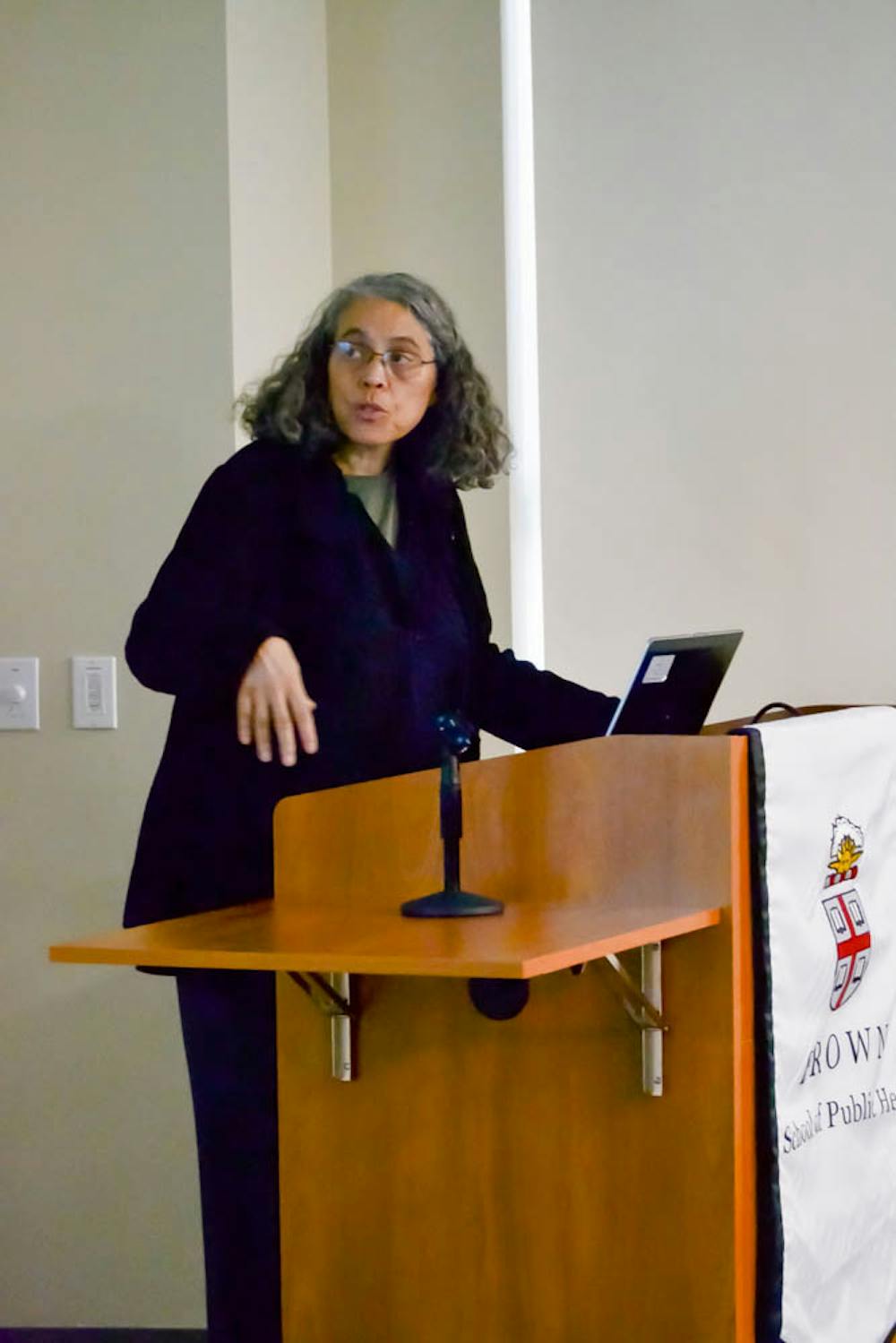2019 will mark the 400 year anniversary of the first Africans arriving in Jamestown to be sold as slaves, said Mindy Fullilove, professor of urban policy and health at The New School, to an audience of students, administrators and members of the public on Monday at the School of Public Health.
Fullilove delivered the School of Public Health’s inaugural Black History Month lecture — co-sponsored by the Center for the Study of Race and Ethnicity in America — which focused on de-industrialization and called on the public to keep the history of slavery present in national dialogue.
Slavery set up inequality as “the fundamental operating principle in American society,” Fullilove said, adding that commemorating its beginnings would not only allow people to reflect and heal, but also allow them to understand how the remnants of slavery continue to impact society today. Examples of inequality include health disparities between racial groups and the displacement of black people from their homes at the hands of local and municipal governments, she said.
Fullilove highlighted moments of national history that had lasting impact on the country. For example, the Civil Rights Movement inspired the tactics used by protesters during the AIDS epidemic that began in the late 1970s.
Decline in manufacturing employment has left cities “in catastrophe,” Fullilove said, creating a divide between economic winners and losers. Failure to address the effects of de-industrialization on economic inequality and national division led to the election of President Trump, she added.
The idea for the talk began when three students at the School of Public Health — Nicole Aimua GS, Cat Nwachukwu GS and Ewu Harrell GS — wanted to host an annual lecture focusing on public health topics specific to black populations.
Aimua became involved in the effort because her thesis focuses on prisoner health, speaking to her interest in health care for underrepresented groups, she said.
After Fullilove’s talk, the floor was opened for questions, and much of the audience’s concerns surrounded the threat Trump poses to vulnerable populations. One audience member found parallels between the rise of fascism and the current political climate, and another simply asked how to stand up against Trump. An audience member also felt that Trump’s “Urban Renewal” plan, a proposal Trump claimed would revitalize inner cities, was a serious threat to black populations. Fullilove dismissed the renewal plan out of hand, stating it would fail to truly help urban populations and is rather intended to bolster already wealthy Americans. More broadly, Fullilove urged the concerned audience to “protect our democracy” through grassroots organizing.
“Everybody needs to go to a meeting. You can’t do this on social media,” Fullilove said, adding that community meetings are valuable not only for base-forming and messaging, but also because simply “looking people in the eye” can help one feel less alienated in a hostile political climate.
Fullilove also called on the audience to be a little self-critical. “The left has failed to fully speak to those that have been left behind by de-industrialization,” she said. “How many conversations have you had recently where you said, ‘What are we going to do about de-industrialization?’”





